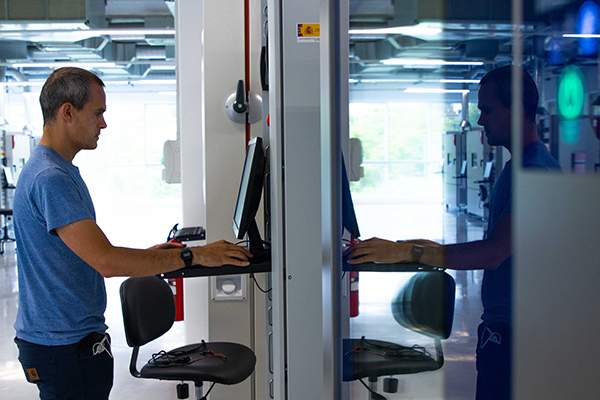
The SPARTACUS project aims to reduce battery charging time by 20% with no negative effects on their useful life, using mechanical, acoustic and thermal sensors.
CIDETEC Energy Storage is aligned with the goal of achieving a climate-neutral Europe by 2050. On this intense path, lithium-ion batteries (LIBs) will play a crucial role in decentralised energy supply and storage, as well as in electric mobility in the new socio-economic scenario on the horizon.
The SPARTACUS project aims to address the current limitations of LIBs by establishing a strategy to increase the charging speed by 20%, without negatively impacting battery life or safety. Currently, LIBs use centralised battery management systems (BMS) which, although designed to ensure safe and economical battery operation, do not allow the execution of physico-chemical ageing models, which are necessary to optimise the use of these batteries.
The project will provide insight into the reasons for the battery degradation, using built-in smart sensors in the cell. This information will be used to build models that will provide detailed information on the problems occurring inside the battery, in order to solve them, whilst always maximising the battery life. Using the data obtained, cell monitoring will also be improved to increase battery safety, avoiding overheating and the possibility of the batteries igniting.
CIDETEC Energy Storage’s main function will be to validate the developments obtained during the previous study at its facilities of the MUBIL Electromobility pole, one of the most complete poles in Europe in battery testing. After defining the sensor and the model’s functionality, the expected result will be analysed and, with this information, tests will be designed to evaluate the results of this project and validate the models, alongside the other partners.
Thanks to the knowledge generated in the SPARTACUS project, coordinated by the German Fraunhofer centre and with a budget of €4 million, we will establish ways to put LIBs on the market with a faster charging speed, reducing their danger to a minimum, and which will be more sustainable thanks to greater recyclability.